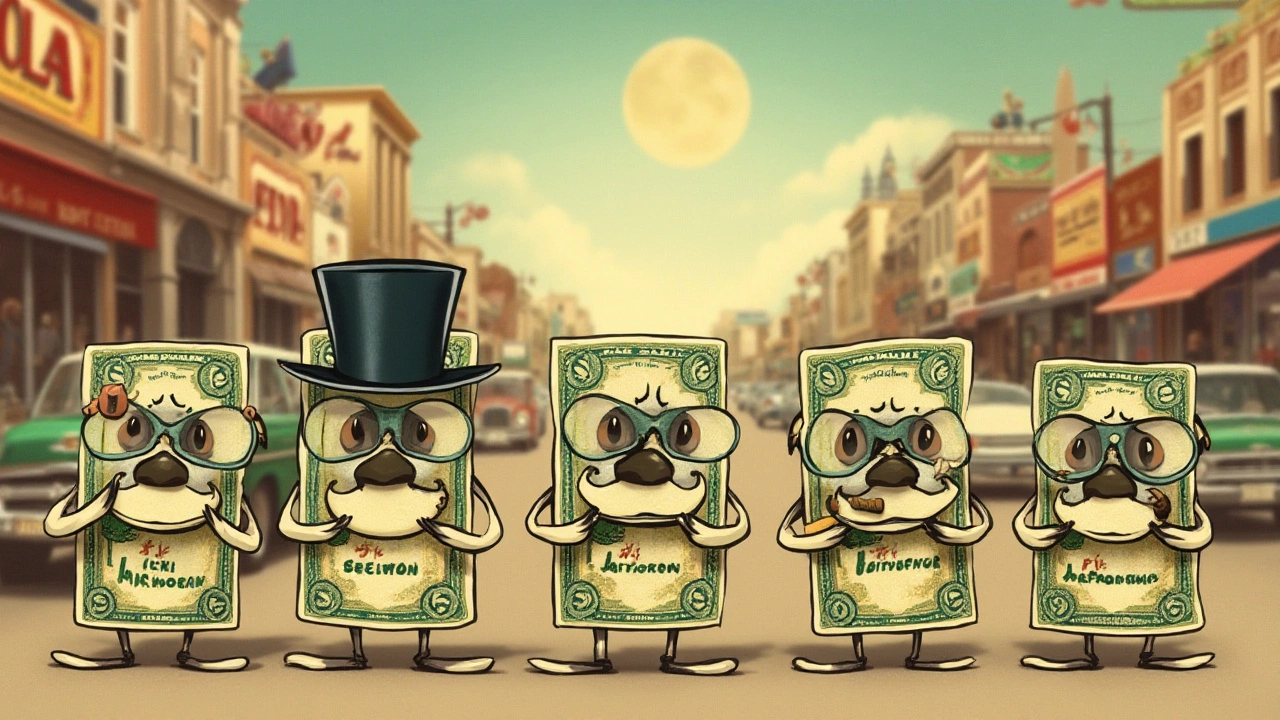Currency Slang: What It Means and When to Use It
Ever heard someone say "he’s got a stack of cash" and wondered what a "stack" actually is? Money slang rolls around us every day, whether you’re watching a TV show, scrolling social media, or chatting with friends. Knowing the lingo helps you follow the conversation and avoid awkward moments.
Common U.S. Money Slang
A stack usually means a thousand dollars. The term comes from the way bills are often stacked in bundles of 100, so ten bundles equal a "stack." When someone says "I earned a stack last week," they’re talking about $1,000. Grand is another word for a thousand, short for "grandfather" – an old nickname for the $1,000 bill that used to exist.
The G is just a single‑letter shortcut for a grand. You’ll hear it in lines like “That car costs 20 Gs,” meaning $20,000. A brick refers to $1,000 as well, because a stack of ten hundred‑dollar bills looks like a brick. Some folks also call $100 a "C-note" (from the Roman numeral C) and $10 a "sawbuck" (the X shape of an old ten‑dollar bill).
Rare but interesting is the ultra‑rare $1,000 bill. Collectors call it a "grand note" or just "the thousand." It hasn’t been printed for everyday use since the 1930s, but it lives on in movies and slang. Knowing that it’s more of a collector’s item than cash you’ll actually get helps you understand jokes about "finding a grand in the couch."
UK and Global Money Terms
Across the pond, the British use different nicknames. A "pony" is £25, a "monkey" is £500, and a "ton" means £1,000. These animal‑related names date back to old gambling slang. If someone says they’ve got a "pony" in their pocket, they’re talking about a modest amount of cash.
In Australia, a "kanga" is $1,000 (named after the kangaroo) and a "bob" used to mean 12 pence before decimalisation. Many countries also borrow the U.S. terms, especially in online gaming and global pop culture, so you’ll hear "stack" or "grand" used in places far from America.
Understanding these terms makes you sound savvy, and it can also help you spot scams. If a seller claims an item costs "five stacks," check whether they really mean $5,000 or something else. Always confirm the amount in numbers before you agree to anything.
Next time you hear money slang, you’ll have a quick mental cheat‑sheet: stack = $1,000, grand = $1,000, G = $1,000, brick = $1,000, pony = £25, monkey = £500, ton = £1,000. Use these definitions to keep up with the conversation, no matter where you are.

